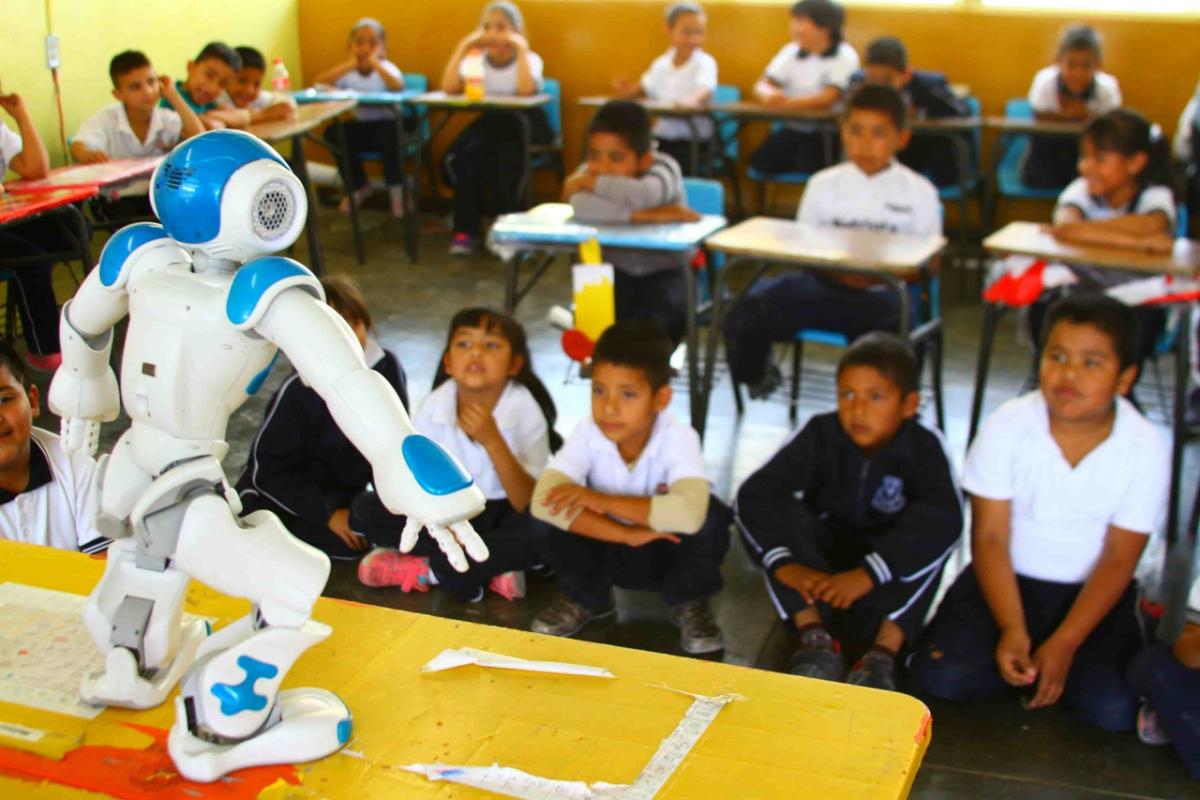Peñasquito’s Education Strategy Builds Capacity and Competence in Communities

Goldcorp recognizes that sustainable development goes hand-in-hand with access to education, which is why we place a high priority on supporting education and other social programs in communities near our operations.
The Peñasquito mine, for example, works closely with community leaders, teachers, and partners in 25 Mexican communities to ensure young people have the opportunities and skills they need to pursue fulfilling future careers.
“Investing in education programs is the most important step we can take to promote sustainable growth in our region,” noted Maria de Gasperin, Social Investment Chief at Peñasquito. “Through our social education strategy, we’re working with our neighbours to combat serious social problems that help improve living conditions for families in Mexico.”
In developing its program, the Peñasquito team conducted a detailed analysis of educational needs in the municipalities of Mazapil, Concepción del oro and Melchor Ocampo. This included a baseline study of demographics, schools, drop-out rates and other factors. Focus groups and interviews were conducted with community leaders, teachers and parents to identify educational requirements and opportunities. The Peñasquito team also involved NGOs and other partners to provide input on educational needs.
“Many of the schools in our region have only one teacher for the whole school,” explained de Gasperin. “This teacher may be covering six different grades which impact the quality of education the children receive.”
Peñasquito takes a multifaceted approach to support children from kindergarten through to high school through the provision of learning materials and new educational curriculum covering science, art, sports and other subjects. Training is available for teachers to improve instructional skills, and considerable investments have been made to upgrade educational spaces and expand infrastructure. The mine partnered with three non-profits to implement the education program with Wheaton Precious Metals coming on board as a business partner.
In cooperation with educational institutions, psychologists and other professionals work with local teachers and families as well as tutor children 6 to 12 years old to help them improve study skills, reinforce values and inspire students to continue with their education.
“We also provide counselling sessions for parents on how to study with their kids and motivate their children not to drop out of school,” adds de Gasperin.
Scholarships are available through Peñasquito’s Academic Scholarship Program providing funding for tuition, school uniforms and supplies for qualifying students.
Sports training is an integral component of the program with sports competitions held in various communities to encourage teamwork and physical fitness.
In alliance with Wheaton Precious Metals, Peñasquito and affiliated business partners donated computers and technical equipment to CONALEP (Colegio Nacional de Educatión Profesional Técnico), the National College of Technical Professional Education in Mexico, enabling the college to expand its academic programs to include safety and civil protection. With the support of the mine, the CONALEP recently added a technical training program in diesel engines, electromagnetics and security providing a new career path for high school graduates. As part of its commitment to infrastructure improvement, Peñasquito and Wheaton Precious Metals plan to build student housing for a CONALEP in Mazapil next year.
Since implementing its social education strategy, Peñasquito has created partnerships with 34 educational institutions in the region. More than 100 teachers have been trained and approximately 2,000 children and young people in communities near the mine have benefited from the program. Last year, 935 scholarships were awarded to students 6 to 22 years old, of which 20% had grade averages of 90% or higher.
“The children we are impacting today through this program are the next generation of workers and community leaders,” concluded de Gasperin. “Providing these important educational opportunities and tools to improve living conditions in our communities is a legacy we can all be proud of.”
